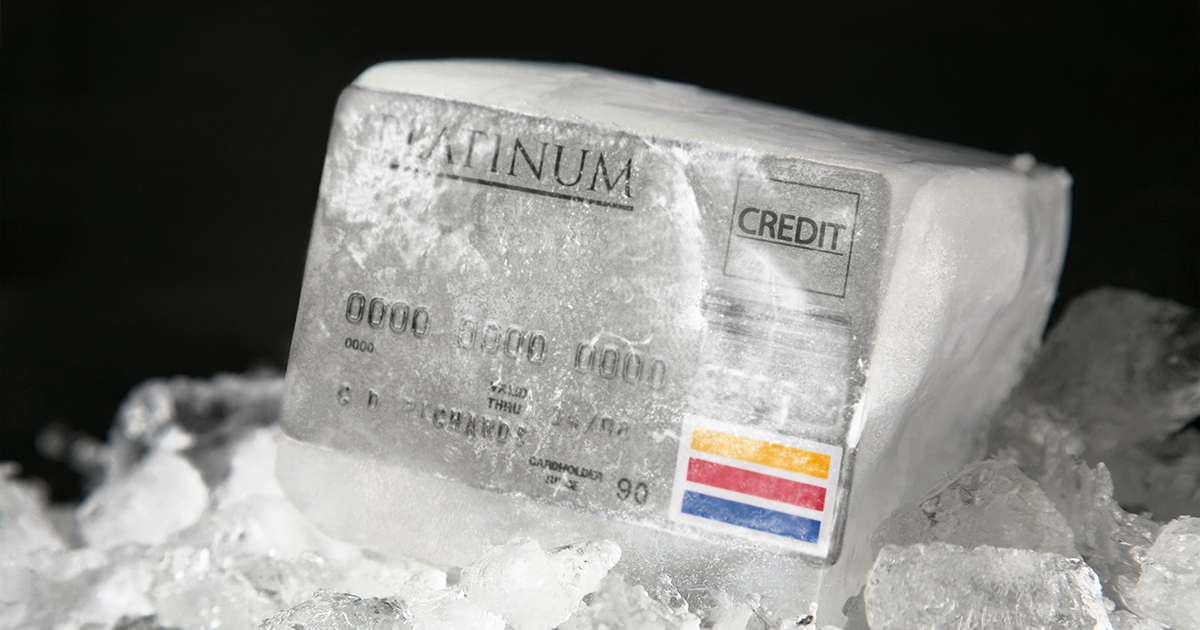In 2020, the pandemic canceled or put a hold on many things, like family gatherings, music fests and even the Olympics. But it didn’t stop the icy temperatures of winter or challenges to navigate road construction in the Midwest, and identity thieves didn’t take time off either.
A staggering 650,000+ people reported identity theft in the U.S. last year, with more than 271,000 people saying fraudsters opened credit cards in their name. While the numbers are not final for 2020, the FTC saw a spike in social media scams and romance scams this year. So how do you keep your financial information safe and protect yourself (and your credit)? Freezing your credit is one option.
What is a credit freeze?
A credit freeze, which is also sometimes called a security freeze, makes your credit inaccessible and unusable to most requestors, just like those tempting cookies you stuck in the freezer to avoid binging. By freezing your credit with the three primary reporting agencies—TransUnion, Experian and Equifax—only you and a limited number of institutions (like your current lenders) can view your credit.
It’s free to freeze your credit, but you need to contact each reporting agency and they will help you set up a PIN or another method to verify your identity when you want to unfreeze your credit. Credit reporting agencies also offer a credit lock option (typically for a fee), which allows you to lock and unlock your credit, usually through an online portal. Unlike a credit freeze, credit locks aren’t governed by federal law, so protections and guarantees vary by provider.
Why do people freeze their credit?
Financial and personal data is stored in the cloud, meaning your information is at risk in the case of a data breech (like the 2017 Equifax breech). An increasing number of online scams also put consumers at risk, like entering your information into a website to gain access to the latest COVID-19 stats and safety guidelines or purchasing a product you saw in a social media ad.
Freezing your credit is a preventive measure to avoid identity theft, since the only way to access your credit report is by unfreezing your credit. That means if you are in the market for a new car, you’ll need to unfreeze your credit so your potential lender can view it. Then you can call each credit bureau and re-freeze it. While it’s time-consuming, it DOES stops fraudsters from taking out loans and credit cards in your name.
How do you freeze credit?
While there are many service options for locking your credit, these usually come with a fee and are not governed by federal law. A credit freeze, on the other hand, can only be done by contacting each credit bureau directly. Use the links and phone numbers below if you are interested in learning more or if you are ready to freeze your credit.
- Equifax: 800.349.9960 or go online
- Experian: 888.397.3742 or go online
- TransUnion: 888.909.8872 or go online
A credit freeze is just one way to keep tabs on your credit report. Be sure to regularly monitor your credit through annualcreditreport.com (free weekly checks through April 2021) or consider putting a fraud alert on your credit.
If you’re looking to start your credit history or improve your existing credit score, schedule a time to meet with one of our team members virtually.






 Federally Insured by NCUA |
Federally Insured by NCUA |  Equal Housing Opportunity |
Equal Housing Opportunity |